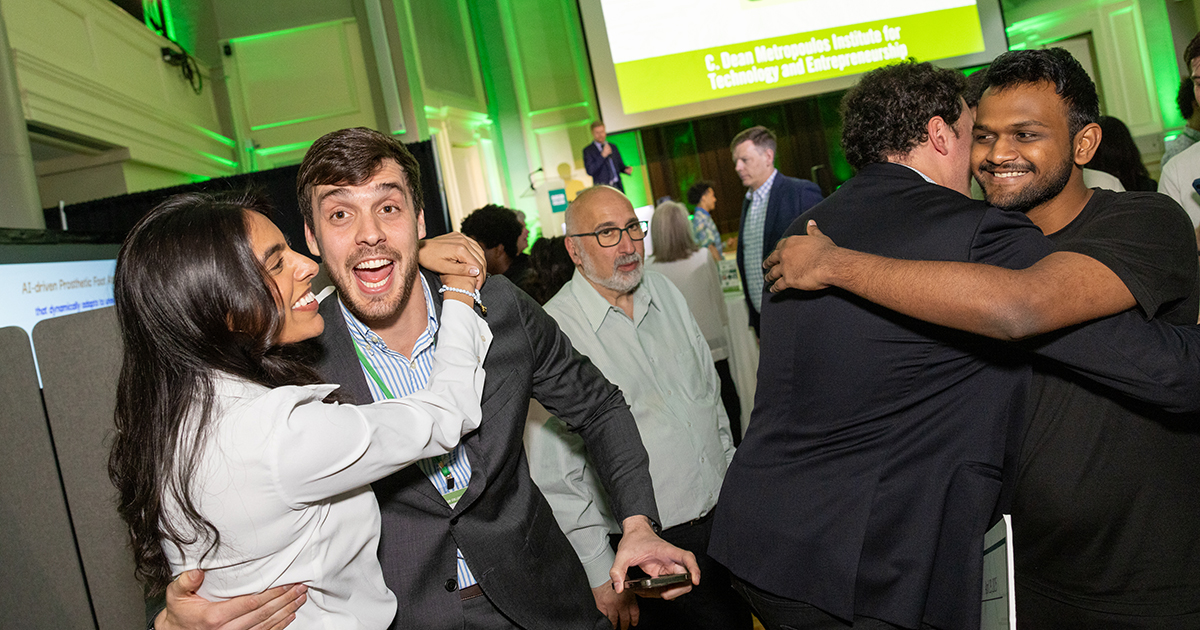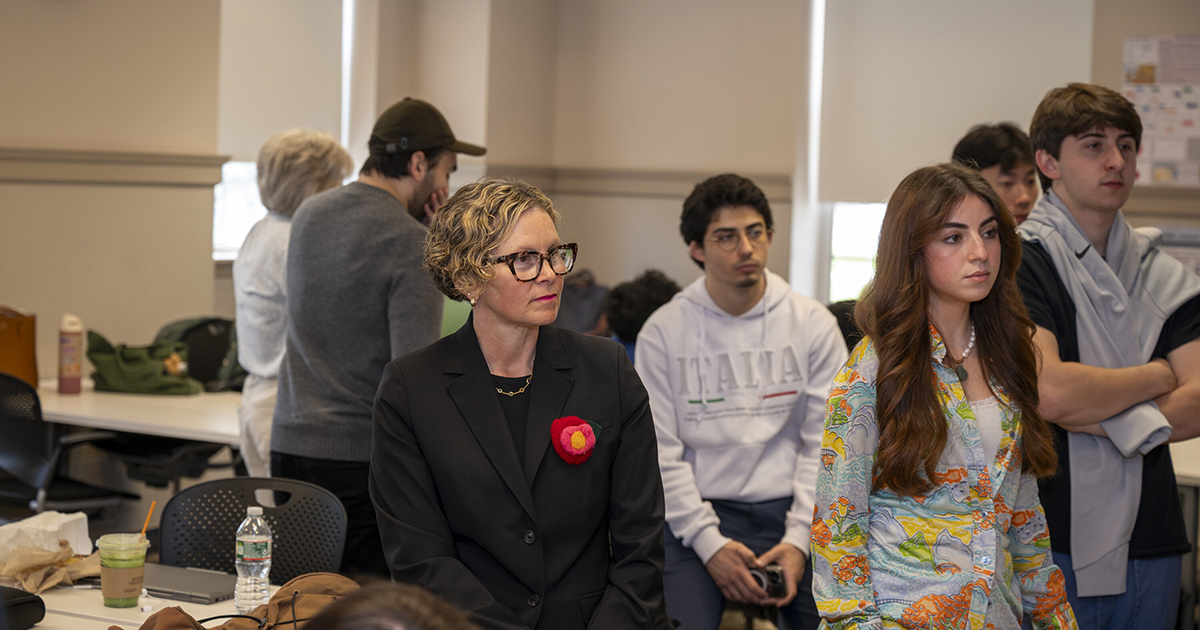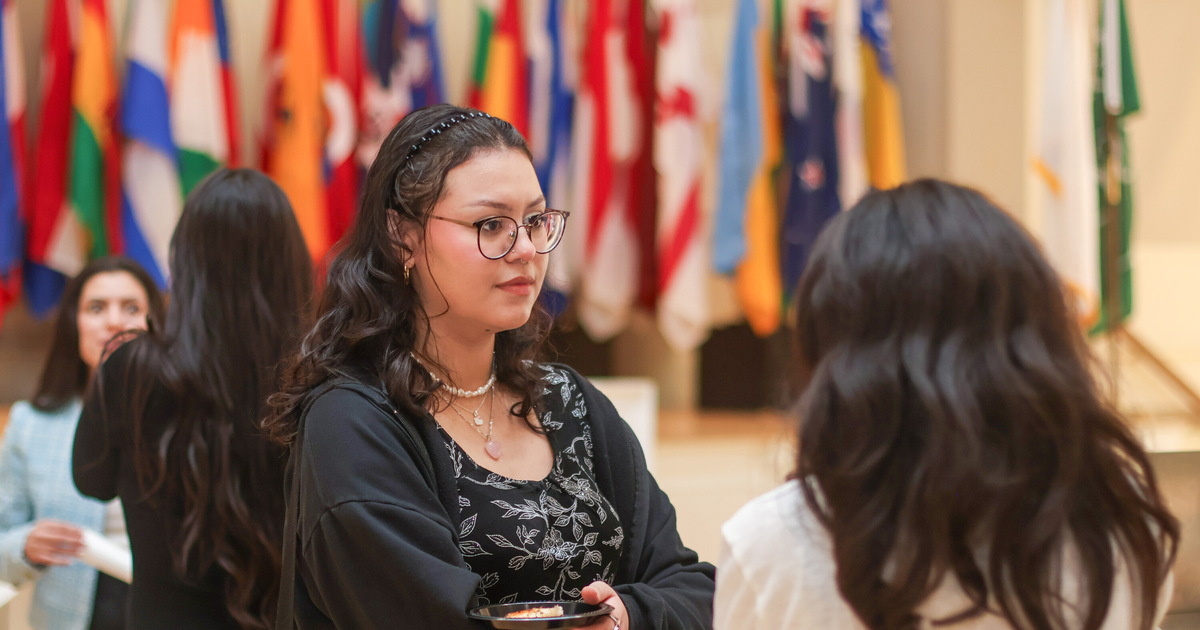Research Finds ROI for Businesses Working to Improve Community Health and Well-being

A new report identifies a strong business case and untapped opportunities for the private sector to address community health more proactively. This 18-month project was supported by the Robert Wood Johnson Foundation (RWJF) and led by a partnership between Babson College’s Lewis Institute for Social Innovation and IO Sustainability.
The ROI of Health Care
The report, Project ROI: Driving Corporate Involvement in Community Health and Well-being, builds on Babson and IO Sustainability’s groundbreaking research, Project ROI: Defining the Competitive and Financial Advantages of Corporate Responsibility and Sustainability, which established the potential return on investment that authentic corporate responsibility can deliver to companies. Applying similar research methodologies and best practices from the first report, the Project ROI team reviewed over 500 previous studies and reports, and convened a multisector consortium of companies, called the Business Advisory Council on Health (BACH).
The team found that:
- Improving community well-being by addressing the factors that contribute to health like education, transportation, housing, and jobs will reduce costs related to health care and enhance key performance indicators such as enterprise value, financial performance, employee productivity, sales, and reputation.
- Partnerships with other businesses and community organizations along with other incentives are vital for helping businesses address community health challenges outside of the workplace.
Business and Health Care
“In the United States, business accounts for a significant percent of the country’s total annual health care spending—not including the hundreds of billions of dollars the private sector loses due to health-related absenteeism and reduced productivity,” states Steve Rochlin, CEO of IO Sustainability and lead author of the study. “It’s no wonder why businesses care so much about finding better ways to promote health outcomes and reduce costs.”
At least 22 percent of these costs come from 10 factors that research finds are driven by community-related conditions such as the quality of safety, crime, education, jobs, transportation, and stress. This represents an urgent gap for businesses to close.
There is rising appreciation for the importance of community health in the business community. A growing number of companies are investing in community health and well-being through new products, human resources, technology, operations, and corporate responsibility approaches.
“The important research from this report has helped underscore what we have long suspected,” says David Minifie, chief experience officer at Centene Corporation. “Whether we want to improve the health of our employees or the country as a whole, we must address the variety of community-related factors and conditions that influence our health.”
Kathleen Tullie, director of social responsibility at Reebok International and founder and executive director of BOKS, adds, “As this study illustrates, private business has a key role to play to advance health initiatives within our communities. And, while the private sector’s role is clearly critical and beneficial, I can’t stress enough the importance of multisector collaboration. Only when we join forces with health leaders in government, nonprofits, and grant makers will we be able to make the strides necessary to make an impact in the area of community health.”
Cheryl Kiser, executive director of the Lewis Institute for Social Innovation and report co-author states, “Logically, the only way for business to address health costs, needs, opportunities, and challenges systemically is to help advance wider community health and well-being. The report finds that community health will benefit from the focused application of the entrepreneurial actions and ways of thinking that are strengths of the private sector.”
As a result of this research, IO Sustainability and Babson’s Lewis Institute are engaging with a multi-industry group of companies to advance entrepreneurial and collaborative solutions to community health needs. IO Sustainability has developed a diagnostic tool to help companies enhance the approach they take to support the health of their employees, communities, customers, and environment. For more information and to review the report, visit www.babson.edu/projectROI.
Posted in Community






